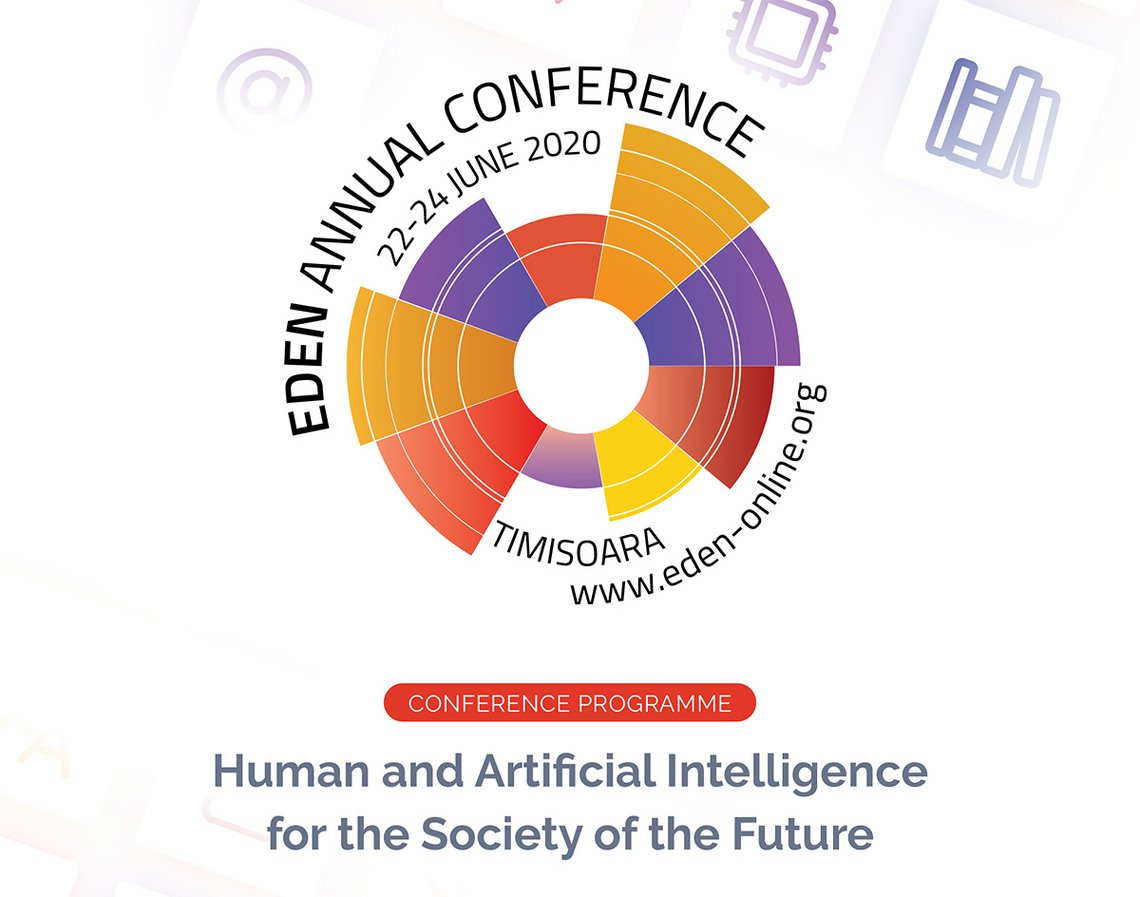This year, the European Distance and E-Learning Network (EDEN) 2020 Online Annual Conference took place in June 2020 in Romania and once again, ACS Athens had faculty-produced publications presented to the participants and featured in the book of proceedings.
Dr. Antonios Karampelas, Science and Technology Faculty and Artificial Intelligence Framework Coordinator at ACS Athens had his work on introducing Artificial Intelligence into the Academy curriculum accepted as a full paper for the "Human and Artificial Intelligence for the Society of the Future: Inspiring Digital Education for the Next STE(A)M Student Generation" conference of the European Distance and E-Learning Network (EDEN) and be included in the Conference Proceedings (ISSN: 2707-2819). Dr. Karampelas had the chance to present his work "Developing and delivering a high school artificial intelligence course in blended and online learning environments" to the conference participants virtually, discussing the development and delivery of Artificial Intelligence to Academy students and the topics being covered - Impact of Artificial Intelligence, Machine Perception, and Machine Learning - as well as sharing his reflective views on student learning with his peers.
The second publication, titled "Transitioning a K-12 International School from blended to online learning in response to an external shock: lessons learned" was co-authored by Julia Tokatlidou, Dr. Maria D. Avgerinou and Dr. Peggy Pelonis. In the publication, the authors recognized that the COVID-19 pandemic and ensuing school closure in March 2020 was a problem outside the locus of control of the school leadership. The blended learning culture, as well as ongoing faculty Action Research, were the only constants that could operate as critical enabling factors toward the smooth transition to online learning. The school's primary research goal was to systematically and formatively perform an adequate evaluation of online teaching and learning experiences in the Elementary, Middle, and High School during the COVID-19 period with the view to improving their design, delivery, and outcomes for all involved stakeholders (students, teachers, and parents).The gradual approach in achieving the right balance between asynchronous and synchronous teaching driven by feedback from faculty, students and parents helped in continuing teaching and learning without significant disruptions.
Read the publications below.
Developing and delivering a High School Artificial Intelligence course in blended and online learning environments
Transitioning a JK-12 International School from blended to online learning in response to an external shock: lessons learned




